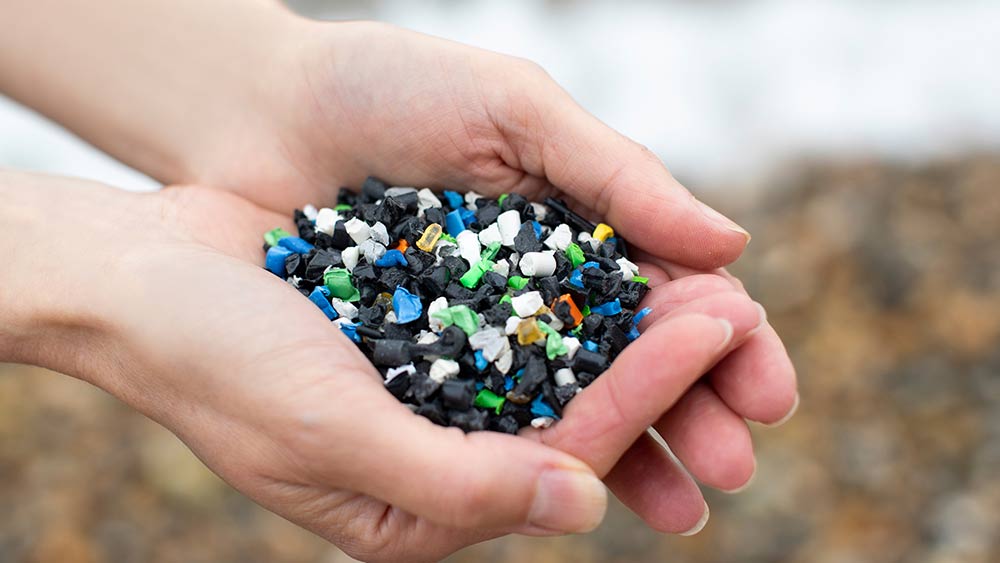
Plastic is a part of modern life and has been integral to societal advancement. Still, its use poses a global environmental hazard. Plastic waste, especially mixed plastic waste, is durable and ends up in landfills and the environment.
A Texas A&M University and University of Oklahoma team of researchers will establish an efficient plastic waste biodegradation strategy thanks to a $2 million grant from the National Science Foundation's Emerging Frontiers in Research and Innovation program.
According to the U.S. Environmental Protection Agency, it is estimated that only about 9% of plastic waste generated in the country is recycled and the rest ends up in landfills, incinerators or marine environments. Because of the time it takes for these plastics to break down, the National Oceanic and Atmospheric Administration estimates they will be there for 100 years or more.
"The research objective is to develop technology and methods that can mitigate this problem, specifically by decomposing plastic waste and then converting the degradation products into high-value products," said Dr. Arum Han, professor in the Department of Electrical and Computer Engineering at Texas A&M and principal investigator on the project. "Establishing an efficient plastic waste biodegradation strategy will be a game-changer in overcoming the mounting global environmental and health concerns."
The team will utilize microorganisms, fungi and bacteria, to essentially break down plastic components, which could be used as source material for other material production.
"Our multidisciplinary team of investigators, with expertise in microfluidics engineering, synthetic biology and microbiology, will work together to decipher how these microorganisms degrade plastic waste and use this information to engineer bacterial cells to improve degradation efficiency," Han said. "We will also utilize a mixture of different bacteria and fungi as a consortium to improve the plastic degradation efficiency, mimicking how microbes work together in decomposing complex materials in nature."
Our multidisciplinary team of investigators, with expertise in microfluidics engineering, synthetic biology and microbiology, will work together to decipher how these microorganisms degrade plastic waste and use this information to engineer bacterial cells to improve degradation efficiency.
There are many types of plastics, but this research will focus on degrading the two most common plastics in packaging — polystyrene used in disposable coffee cups and polyethylene, commonly used in packaging films. The team has already isolated several different bacteria and fungi that show promise in degrading these plastics.
In addition to Han, co-principal investigators are Dr. Xuejun Zhu and Dr. Qing Sun, assistant professors in the Artie McFerrin Department of Chemical Engineering at Texas A&M; Dr. Won-Bo Shim, professor and associate department head for academics in the department of plant pathology and microbiology at Texas A&M; and Dr. Aifen Zhou, research scientist at the Institute for Environmental Genomics at the University of Oklahoma.
Han will utilize high-throughput microfluidic devices to screen millions of individual strains/variants from microbial libraries to identify the most efficient microbes in plastic degradation and reutilization.
Zhu is an expert in synthetic biology, natural product discovery and microbiome engineering who will work on plastic degradation product identification and enzyme discovery and use this knowledge to improve the efficiency of plastic-degrading enzymes through directed evolution.
Sun is an expert in synthetic biology and microbiome engineering and will work on engineering bacteria and creating a bacterial community that can more efficiently degrade plastic waste.
Shim, an expert in fungal biology and genetics, will study fungi that degrade plastic, identify their mechanisms and the most effective strains, and then create tailored synthetic fungal-bacteria consortia to improve the potential for plastic degradation.
Zhou, an expert in environmental microbiology and molecular biology, has been working on isolating plastic-degrading microbial strains from mealworm gut microbiomes and naturally weathered plastic waste sample enrichments, which is the source of bacteria and fungi that will be used in this project. She will continue to work on isolating and identifying the most promising plastic-degrading microorganisms from the environment.
"We will utilize multiple engineered microorganisms as a 'consortia' to degrade plastic waste so that we can deal with mixed plastic waste," Han said. "In parallel, we will utilize the latest synthetic biology technique to engineer microbes so they can use the degradation product as a source to create high-value products."
The team will train next-generation researchers through exposure to multidisciplinary science and engineering at the high school and undergraduate levels as part of the grant. The team will also create online learning modules, presentations and social network materials to build partnerships between academia and the public to communicate and enhance the scientific awareness about the future of plastic waste and the potential for bioremediation.
